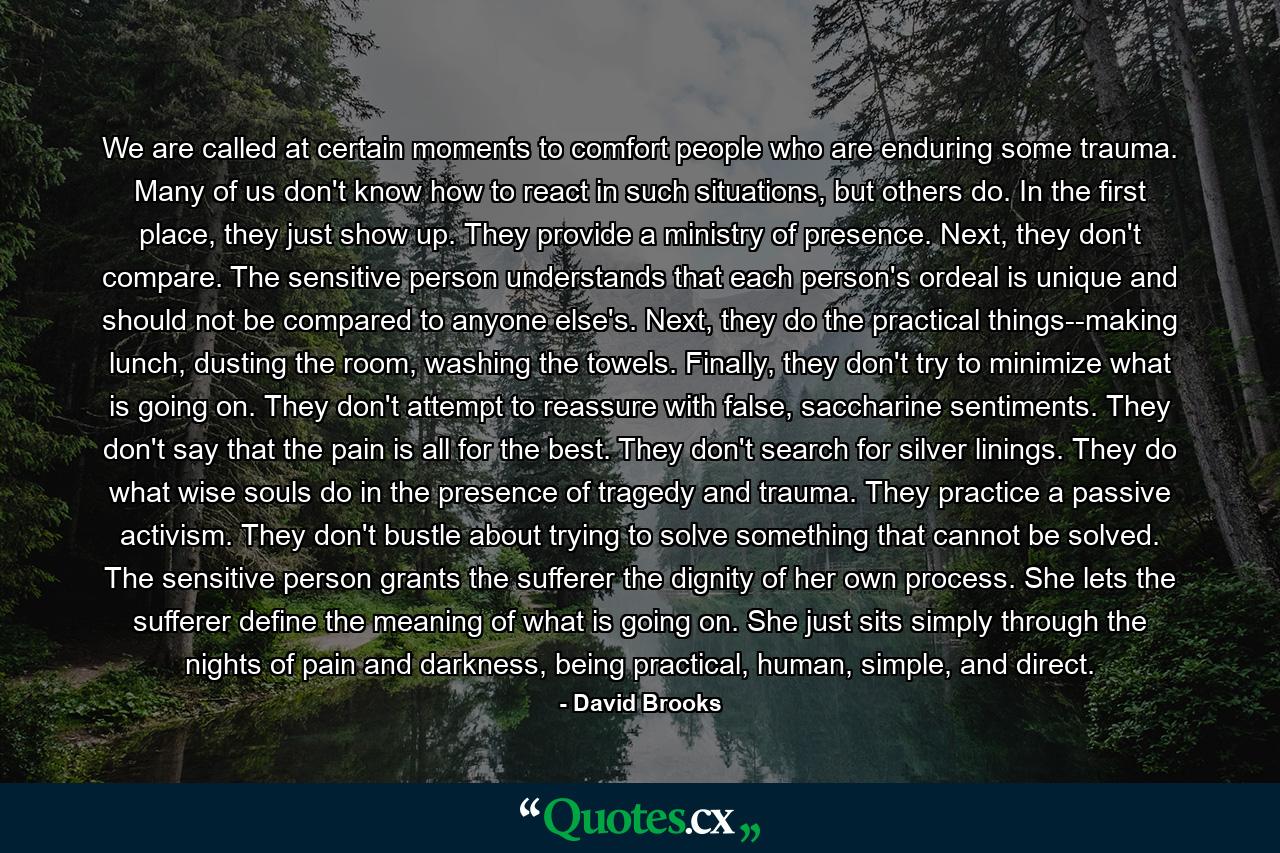We are called at certain moments to comfort people who are enduring some trauma. Many of us don’t know how to react in such situations, but others do. In the first place, they just show up. They provide a ministry of presence. Next, they don’t compare. The sensitive person understands that each person’s ordeal is unique and should not be compared to anyone else’s. Next, they do the practical things–making lunch, dusting the room, washing the towels. Finally, they don’t try to minimize what is going on. They don’t attempt to reassure with false, saccharine sentiments. They don’t say that the pain is all for the best. They don’t search for silver linings. They do what wise souls do in the presence of tragedy and trauma. They practice a passive activism. They don’t bustle about trying to solve something that cannot be solved. The sensitive person grants the sufferer the dignity of her own process. She lets the sufferer define the meaning of what is going on. She just sits simply through the nights of pain and darkness, being practical, human, simple, and direct.
